One thing that is important to understand is that muscles are comprised of muscle cells. Fat is comprised of fat cells. Just like uneaten chicken wont turn into butter, ‘unused’ muscles will not turn into fat.
While morning workouts are better for fat loss (if you are working out before eating) there really is no difference performance-wise between exercising in the morning or at night. The only difference is in how tired you may feel depending on what you do throughout the day before a night workout.
Stretching leads to loose tissue, which can actually be harmful to a workout. Why? Doing explosive/strength-based exercises on loose muscles can interfere with your ability to produce as much force as normal and it could also lead to injuries. Stretching after a workout is far more beneficial.
The fact of the matter is that you can not spot reduce any fat. In order to lose fat, you need to lose it everywhere. The only way to achieve this is to be in a calorie deficit.
Cardio burns calories. Cardio can help ensure that you are in a deficit, but if you are eating more than you are burning (burning as a whole, not just within that workout) then you will not lose fat. Furthermore, too much cardio can cause muscle loss.
The fact of the matter is that a pound of lead weighs as much as a pound of feathers. Muscle is simply more dense than fat.
You have to understand that when you’re building your physique, you may be gaining muscle which will cause you to be heavier. Having more muscle increases your BMR (amount of calories burned throughout the day) which is a good thing.
Many girls I know refuse to lift weights because they don’t want to look like a female bodybuilder. Fair play, but you’re drastically underestimating the skill it takes to become that big. Lifting weights will make you stronger and more athletic, but that alone will not make you bulky. Lift weights, ladies, it’s good for you.
Bodyweight… body… weight… your body is a weight. Pull ups, push ups, chin ups, squats, these are all things you can do without a proper gym, and they WILL make you stronger.
Abs are made in the kitchen, as they say. We all have them, but most of us have a layer of fat that’s hiding them. Eat a proper diet, be in a calorie deficit, and the abs will come. That being said, ab exercises do make them stronger, so don’t avoid them.
Some people are more sweaty than others. That’s all it is, really. Sweating a ton does not necessarily mean that your workout was more effective than someone else who did the same workout with less sweat.
Popular sports drinks not only contain a good amount of sugar and calories, but they lack nutrients that effectively hydrate your body. A perfect substitute is a glass of water with a bit of pink Himalayan sea salt. The salt alone contains over 60 trace minerals. Sports drinks contain about 5
The dreaded anabolic window is a classic myth. You do not have a specific window of time to down a protein shake before your workout goes to waste. As long as you’re getting sufficient protein during the day, you’re good.
Taking no rest days does not make you stronger and bigger. Your body simply needs time to rest and recover, otherwise you will hinder your gains. Rest days are vital. Don’t kick yourself for taking days off.
Your workout did not go to waste if you aren’t feeling particular sore the next day. As long as you’re gradually increasing either weights or repetitions, you are getting stronger and that’s what is important.
If you’re new to the gym, you will definitely see good results within your first month of training. However, it takes longer than a month to fix a lifetime of poor habits. It’s a process and consistency is key.
Sure, there are times where a workout session will feel better or worse than your previous, but that’s not what I’m talking about here. Don’t let someone tell you that a treadmill is far superior to dancing, or that traditional strength training is better than yoga. It all depends on your personal goals and your personal tastes. The best diet or workout for you is the one that you enjoy enough that you will STICK TO IT.

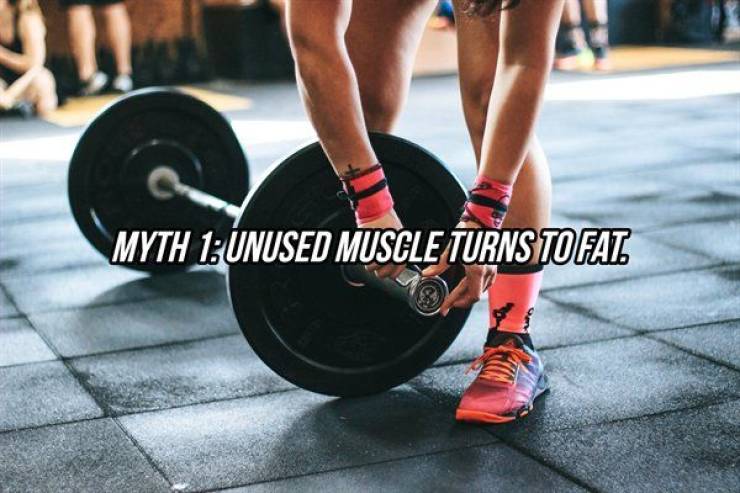
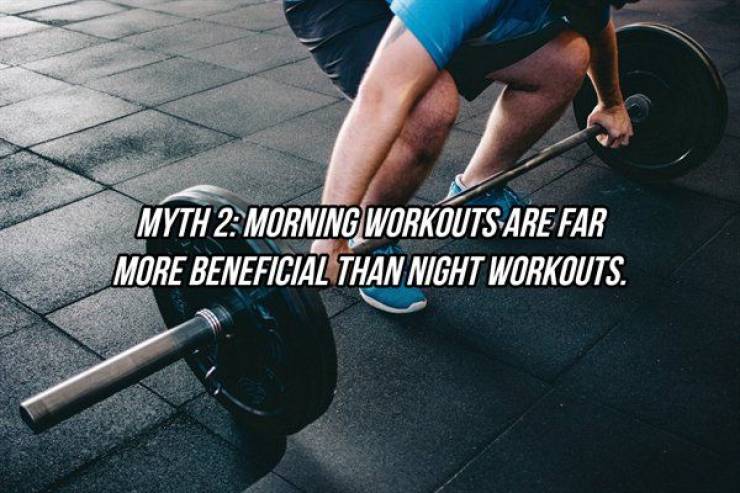
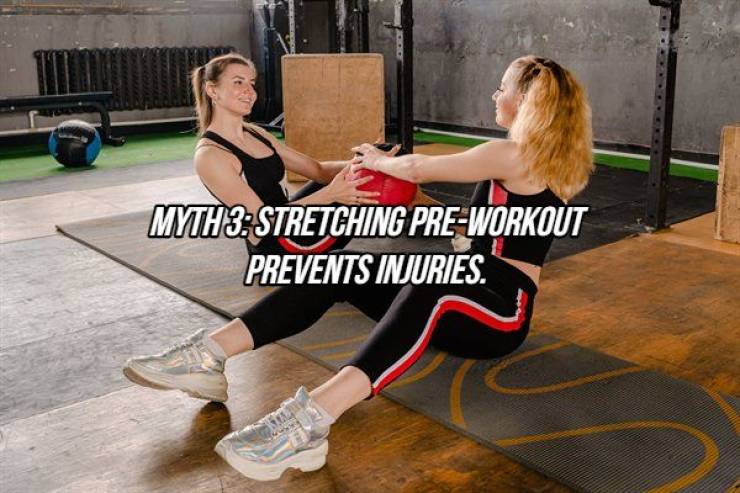
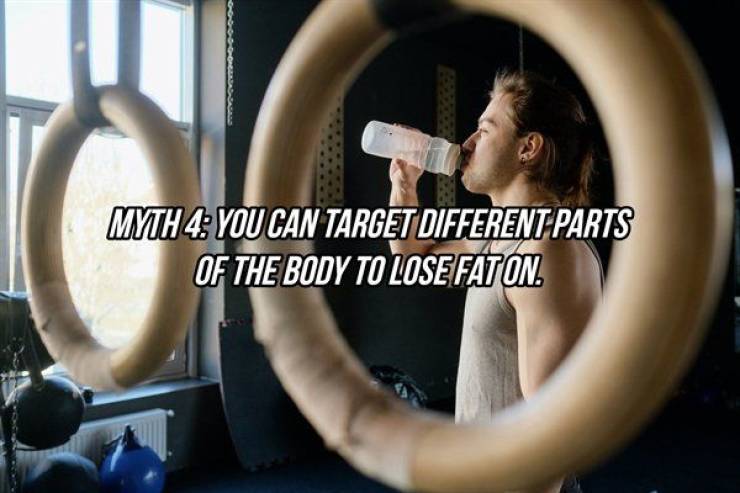
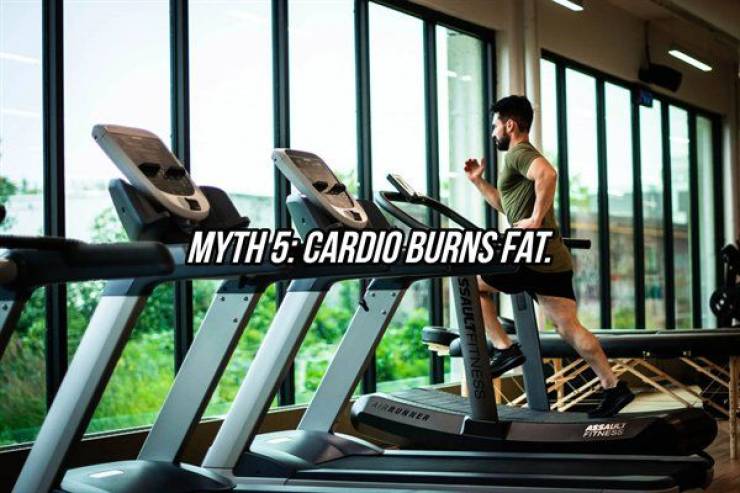
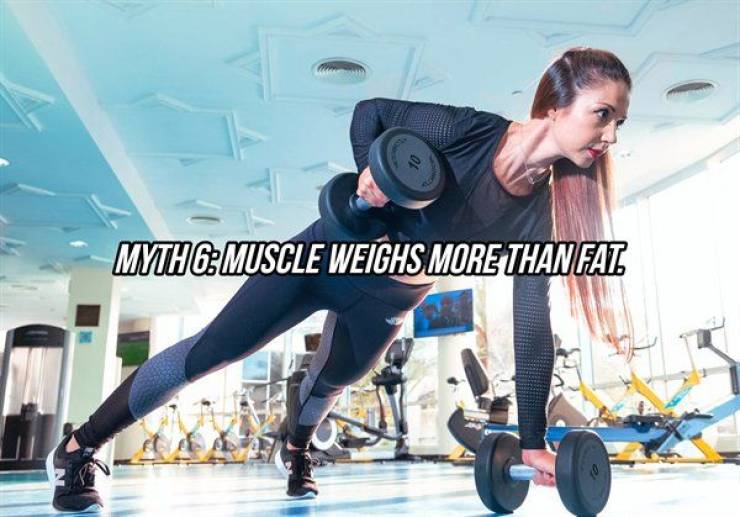
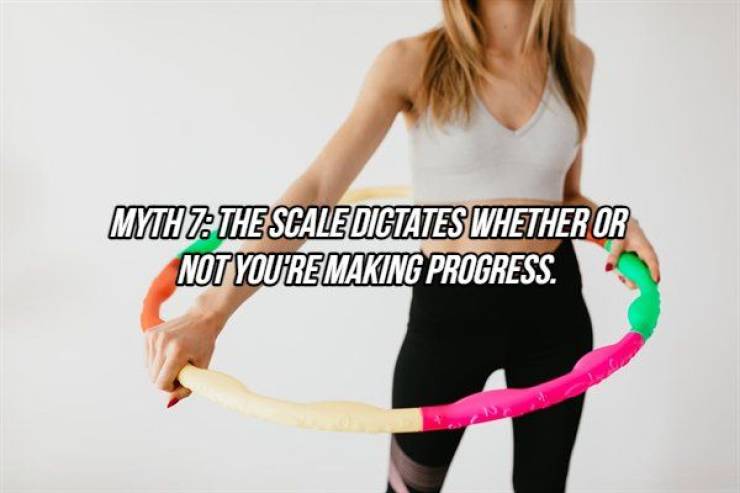
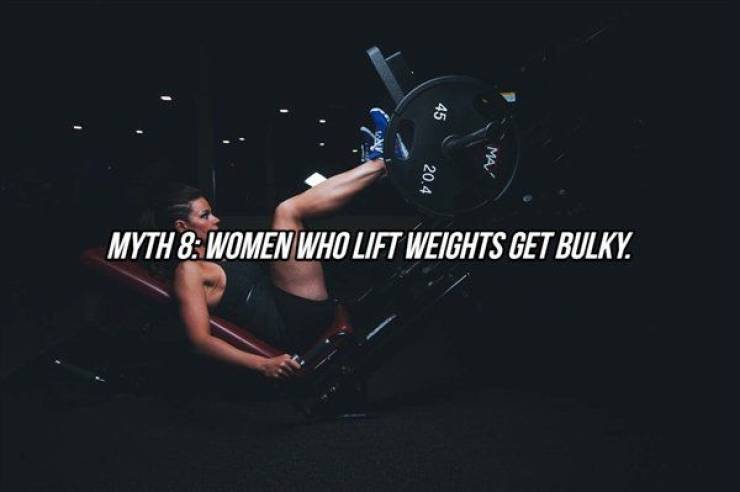
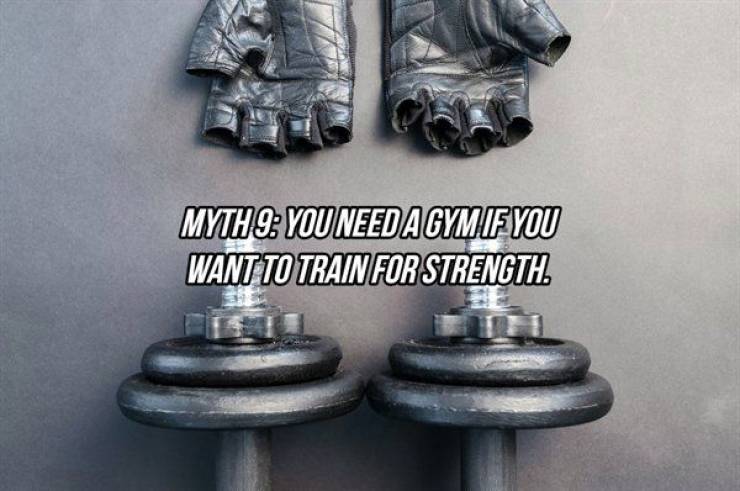
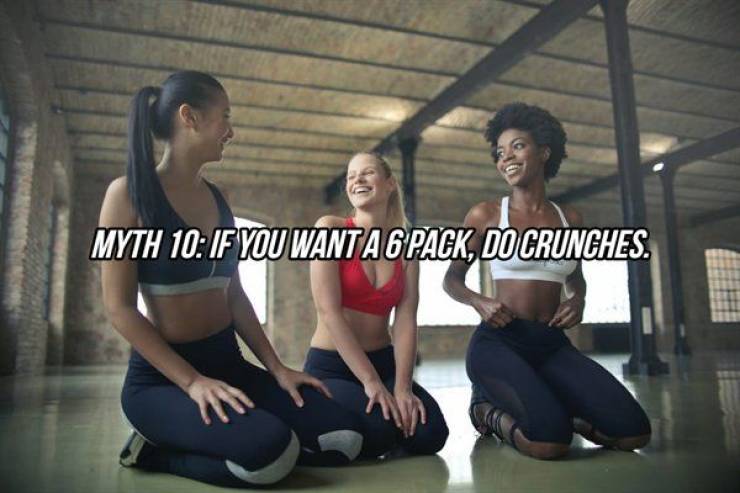
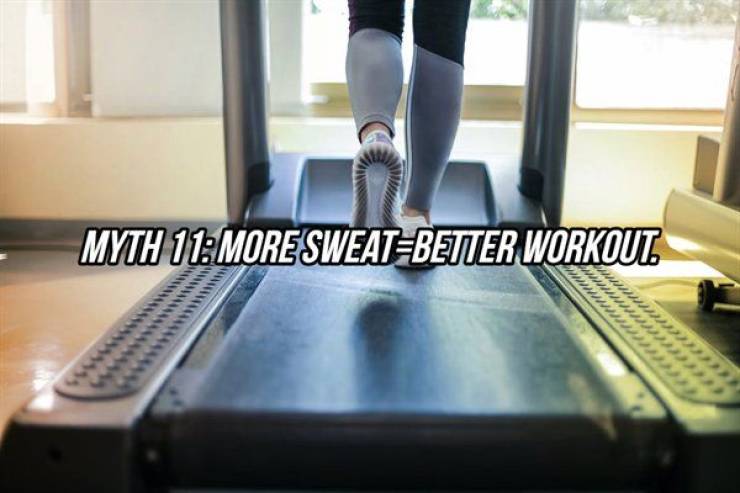
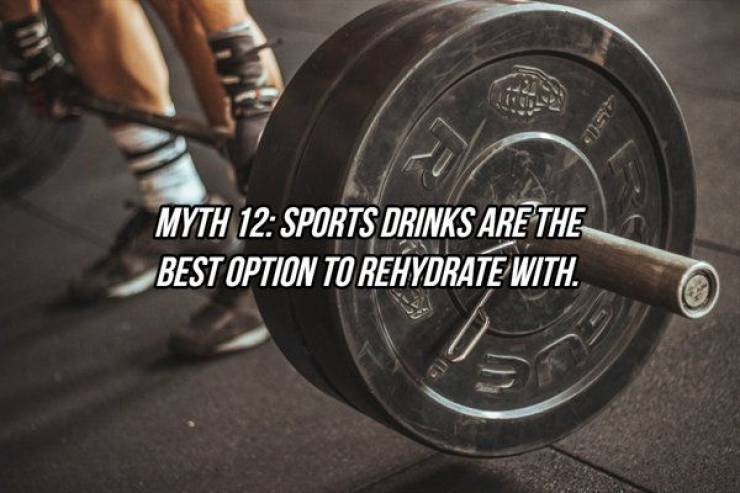
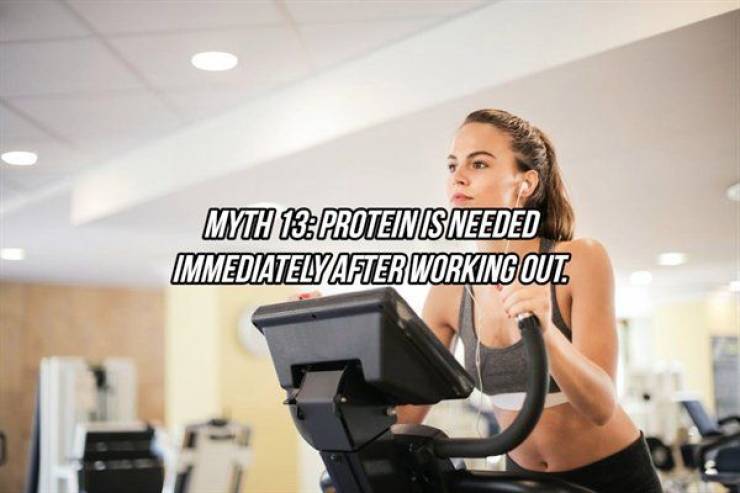
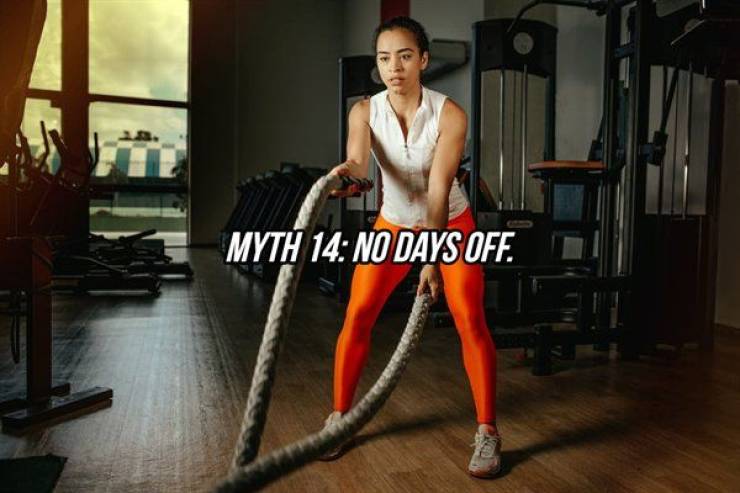
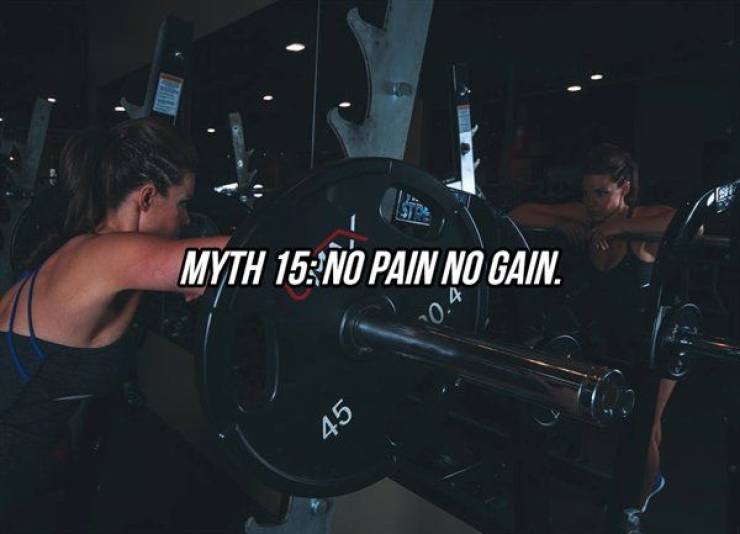
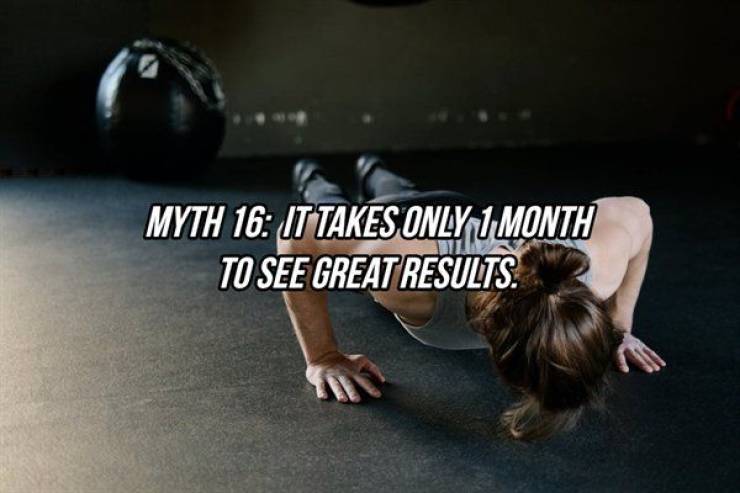
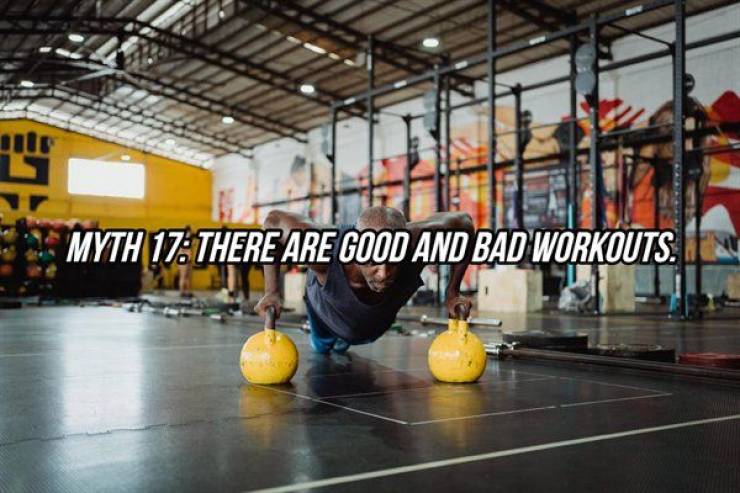
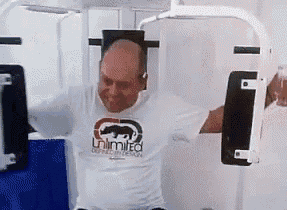



This is true. Typically people with less body fat are less buoyant in water than those with more body fat. This also means they are more susceptible to cold temperatures than their chubbier companions in survival scenarios.
this collection is like 30% bullsh#t. Same with #1: nobody is talking about the individual cells, it is not meant literally.